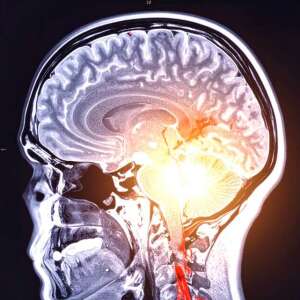Current methods of speech analysis offer a non-invasive and cost-effective way to detect Alzheimer’s, but they struggle with complexity and poor interpretability, making them less accurate and harder to apply in clinical settings.
As Alzheimer’s disease continues to rise with the aging global population, a team of Chinese researchers has developed a promising voice-based method for the early detection of the neurodegenerative condition.
Led by Prof. Li Hai at the Hefei Institutes of Physical Science of the Chinese Academy of Sciences, the researchers emphasize the critical need for early diagnosis to improve patient outcomes. Their study, published in the IEEE Journal of Biomedical and Health Informatics, highlights that language decline is often one of the first signs of cognitive decline.
Current methods of speech analysis offer a non-invasive and cost-effective way to detect Alzheimer’s, but they struggle with complexity and poor interpretability, making them less accurate and harder to apply in clinical settings.
To address these challenges, Hai’s team introduced the DEMENTIA framework, a novel solution that integrates speech, text, and expert knowledge through a hybrid attention mechanism. This method significantly improves both detection accuracy and clinical interpretability.
By incorporating advanced large language model technologies, the DEMENTIA framework captures intricate patterns across speech and text, enhancing both the precision of Alzheimer’s detection and the prediction of cognitive function scores. It also excels in interpretability, making it a powerful tool for clinical decision support.
The researchers believe this new approach has the potential to revolutionize early Alzheimer’s screening and help monitor cognitive decline more effectively, paving the way for improved patient care.
Alzheimer’s disease, the most common form of dementia, affects an estimated 55 million people worldwide, with 60 to 70 percent of these cases attributed to Alzheimer’s. Early detection remains crucial in slowing the disease’s progression and providing better outcomes for those affected.













